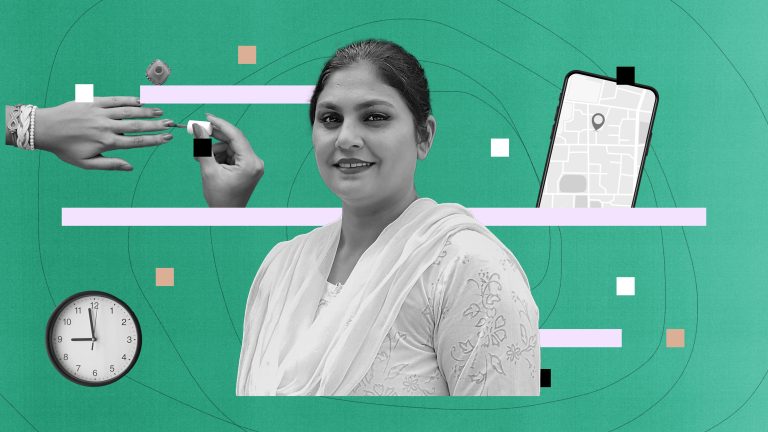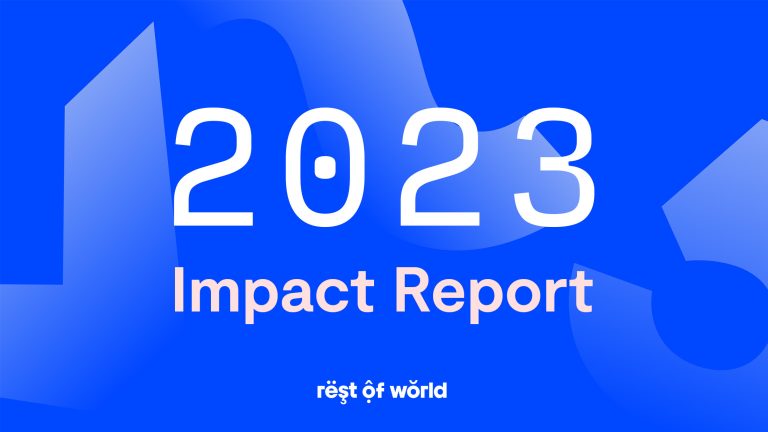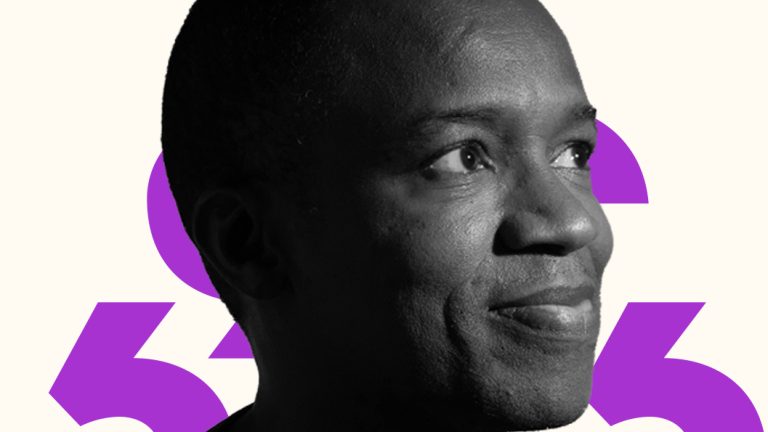Lubna Shahbaz used to be on her feet for 12 hours a day, seven days a week, doing mani-pedis and facials in one of Lahore’s top beauty salons. She didn’t eat while she was on the clock. During the wedding season, when the salon burst with clients until 2 a.m., Shahbaz used to stand for so long, her ankles would swell. The job barely paid her minimum wage.
In 2019, Shahbaz switched to GharPar, an on-demand platform that provides in-home beauty services like waxing, massages, and blow-drys. Launched in 2016, GharPar (Urdu for “at home”) operates in five cities across Pakistan, with around 1,000 beauticians on its roster.
As a platform worker, Shahbaz’s take-home salary is about 70,000 Pakistani rupees ($228) per month. She usually has about three clients a day, which is enough for her to support her husband, who works as a tailor, and their three school-going children. The wedding season in December, when hordes of expats fly into Pakistan, is a busy time for both Shahbaz and her husband. She sometimes does five facials a day, while her husband tackles a rise in orders for clothes.
$228 Shahbaz’s average monthly income as a platform worker.
“Because our income is tied to seasons, some months are really good, but there are dry spells, too,” Shahbaz told Rest of World.
When she first quit her job at the salon and started working with GharPar, Shahbaz found entering other people’s homes jarring. “I was nervous, at first,” she recalled. There was also the occasional difficult client. “The only way to survive is to remain quiet, agree with whatever they’re saying, to not argue back, [and] to talk to them sweetly, your voice laced with love,” she said. “Most of them treat me well.”
Shahbaz’s daily routine
| 6 A.M. | Wake up and get the kids ready for school |
| 10 A.M. | Leave home for first client |
| 12:30 P.M. | Return home for lunch |
| 2 P.M. | Leave to meet second client |
| 5 P.M. | Go back home for tea |
| 6 P.M. | Meet third client |
| 9 P.M. | Return home for the day |
There was also a steep learning curve when it came to using the GharPar app. When she worked at the salon, Shahbaz had only used her phone to make and receive calls. Now, she had to manage bookings on the app, and use Google Maps to figure out where her clients lived. A couple of times, she got lost on the way to an appointment and showed up several hours late. “I was in a very traditional line of work before, so it took me a while to get used to how things worked,” she said.
The bigger hurdle came in the form of societal pressure. “Log kya kahenge?” — “What will people say?” Her neighbors saw her venturing out multiple times a day, getting into auto-rickshaws in the evening, and coming back late at night. “They had a ton of questions: ‘Where are you going?’ ‘Who are you going with?’” Shahbaz said. “But everything ended up okay because my husband was really helpful and supportive, and he told them to mind their own business.”
Ever since Shahbaz began working for GharPar, she has never been out of work, she said. Her children now go to private schools. “With the money I earn, we’re able to save a little, eat well, go for an outing or two, take the kids to Joyland [amusement park] once in a while,” she said. “We’re happier now, because the money is good, and there’s food on the table.”



